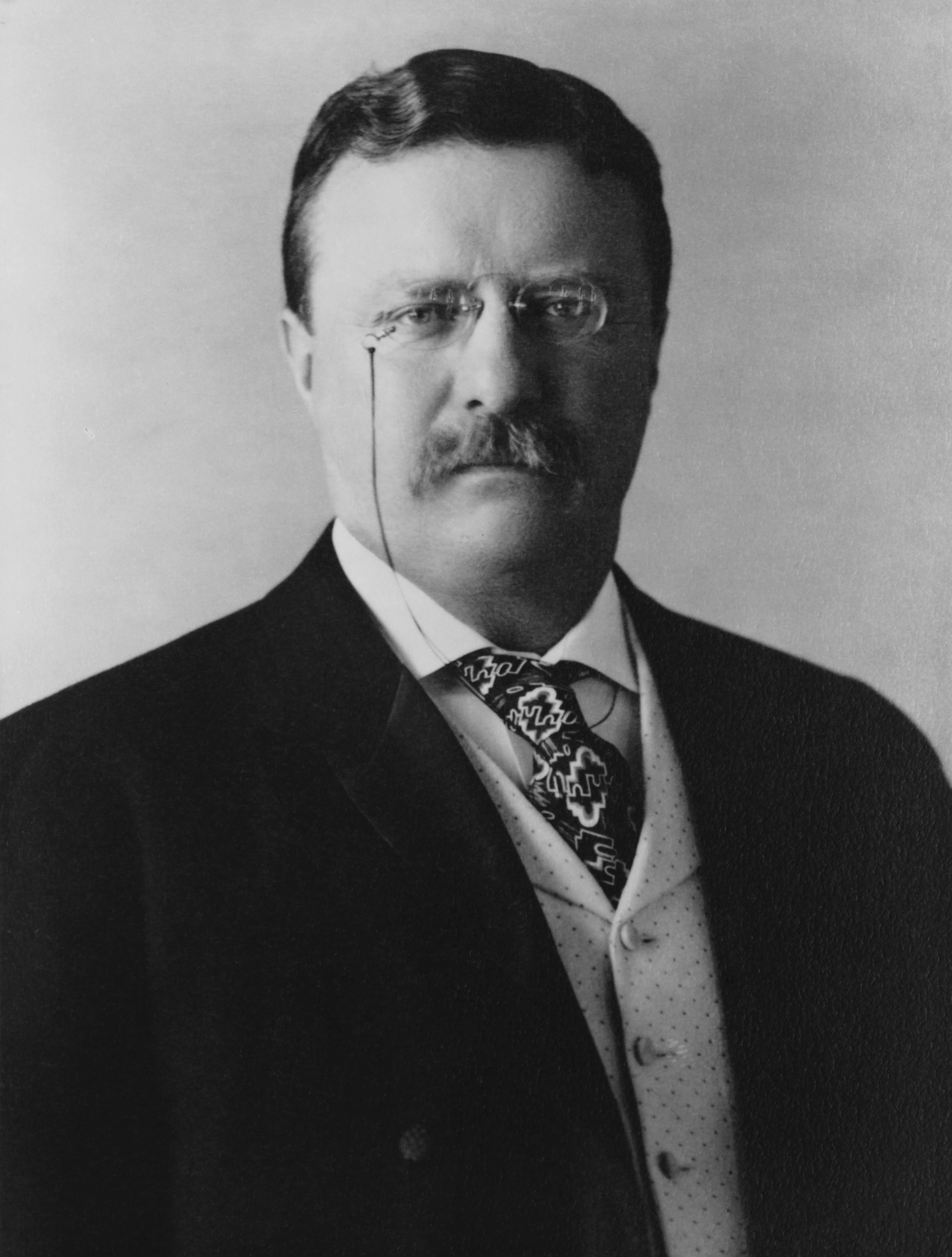Theodore Roosevelt najznámejšie citáty
Theodore Roosevelt citáty a výroky
Theodore Roosevelt: Citáty v angličtine
1910s, California's Policies Proclaimed (Feb. 21, 1911)
1900s, A Square Deal (1903)
Kontext: It is not enough to be well-meaning and kindly, but weak; neither is it enough to be strong, unless morality and decency go hand in hand with strength. We must possess the qualities which make us do our duty in our homes and among our neighbors, and in addition we must possess the qualities which are indispensable to the make-up of every great and masterful nation -- the qualities of courage and hardihood, of individual initiative and yet of power to combine for a common end, and above all, the resolute determination to permit no man and no set of men to sunder us one from the other by lines of caste or creed or section. We must act upon the motto of all for each and each for all. There must be ever present in our minds the fundamental truth that in a republic such as ours the only safety is to stand neither for nor against any man because he is rich or because he is poor, because he is engaged in one occupation or another, because he works with his brains or because he works with his hands. We must treat each man on his worth and merits as a man. We must see that each is given a square deal, because he is entitled to no more and should receive no less.
1910s, The World Movement (1910)
“Malefactors of great wealth.”
Phrase first used in a speech at Provincetown, Massachusetts (20 August 1907)
1900s
1910s, The Progressives, Past and Present (1910)
1910s, Address at Milwaukee, Wisconsin (1912)
1900s, First Annual Message to Congress (1901)
1900s, The Strenuous Life: Essays and Addresses (1900), National Duties
1910s, The New Nationalism (1910)
Kontext: Conservation means development as much as it does protection. I recognize the right and duty of this generation to develop and use the natural resources of our land; but I do not recognize the right to waste them, or to rob, by wasteful use, the generations that come after us. I ask nothing of the nation except that it so behave as each farmer here behaves with reference to his own children. That farmer is a poor creature who skins the land and leaves it worthless to his children. The farmer is a good farmer who, having enabled the land to support himself and to provide for the education of his children, leaves it to them a little better than he found it himself. I believe the same thing of a nation.
1900s, Address at the Prize Day Exercises at Groton School (1904)
1900s, The Strenuous Life: Essays and Addresses (1900), The Strenuous Life
Zdroj: 1910s, Theodore Roosevelt — An Autobiography (1913), Ch. VIII : The New York Governorship
University of Cambridge, England http://www.trsite.org/content/pages/speaking-loudly (26 May 1910)
1910s
“There can be no greater issue than that of conservation in this country.”
Confession of Faith Speech, Progressive National Convention, Chicago http://www.bartleby.com/55/5.html (6 August 1912)
1910s
1900s, Letter to Winfield T. Durbin (1903)
Fourth State of the Union Address (6 December 1904)
1900s
1900s, Inaugural Address (1905)
1900s, The Strenuous Life: Essays and Addresses (1900), National Duties
Eighth State of the Union Address (8 December 1908)
1900s
Speech at New York (11 November 1902)
1900s
1900s, Letter to Winfield T. Durbin (1903)
1910s, The New Nationalism (1910)
Zdroj: 1910s, Theodore Roosevelt — An Autobiography (1913), Ch. VIII : The New York Governorship
Letter to Attorney General William H. Moody (August 9, 1904); reported in Homer S. Cummings, Federal Justice (1937), p. 500
1900s
1900s, A Square Deal (1903)
1900s, The Strenuous Life: Essays and Addresses (1900), National Duties
1900s, A Square Deal (1903)
"How Not To Better Social Conditions" in Review of Reviews (January 1897), p. 39
1890s
Foreword http://www.bartleby.com/55/100.html
1910s, Theodore Roosevelt — An Autobiography (1913)
